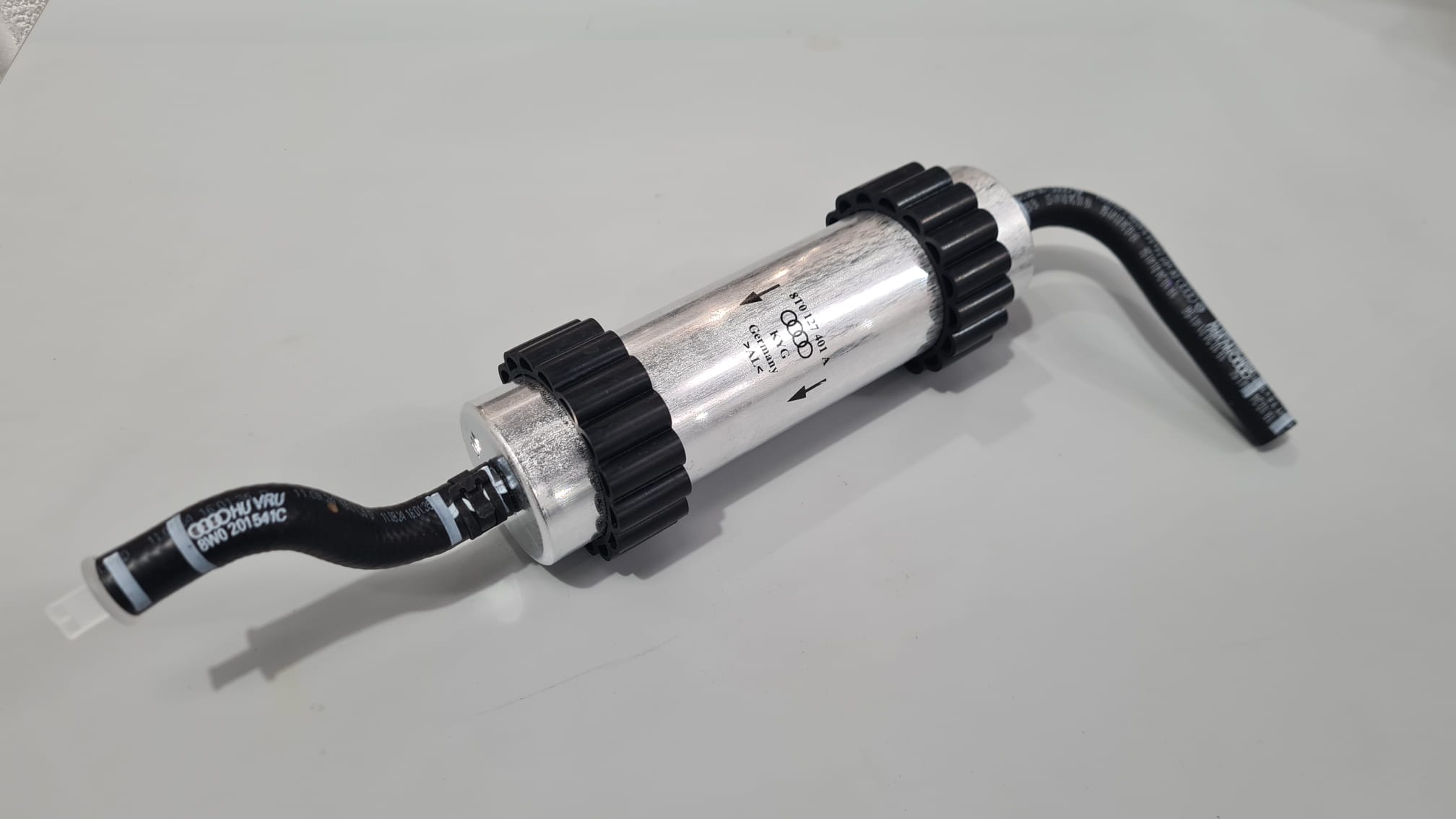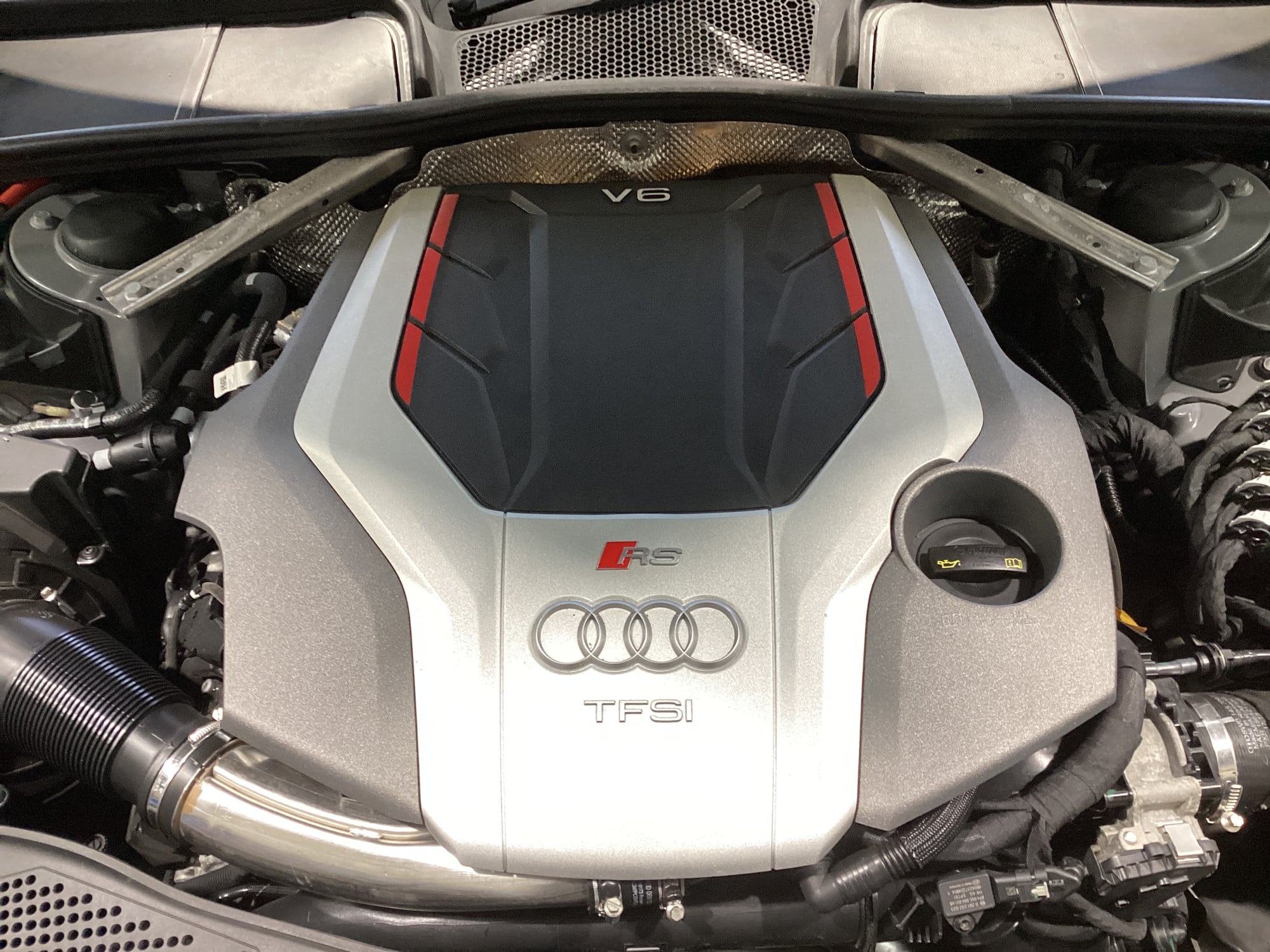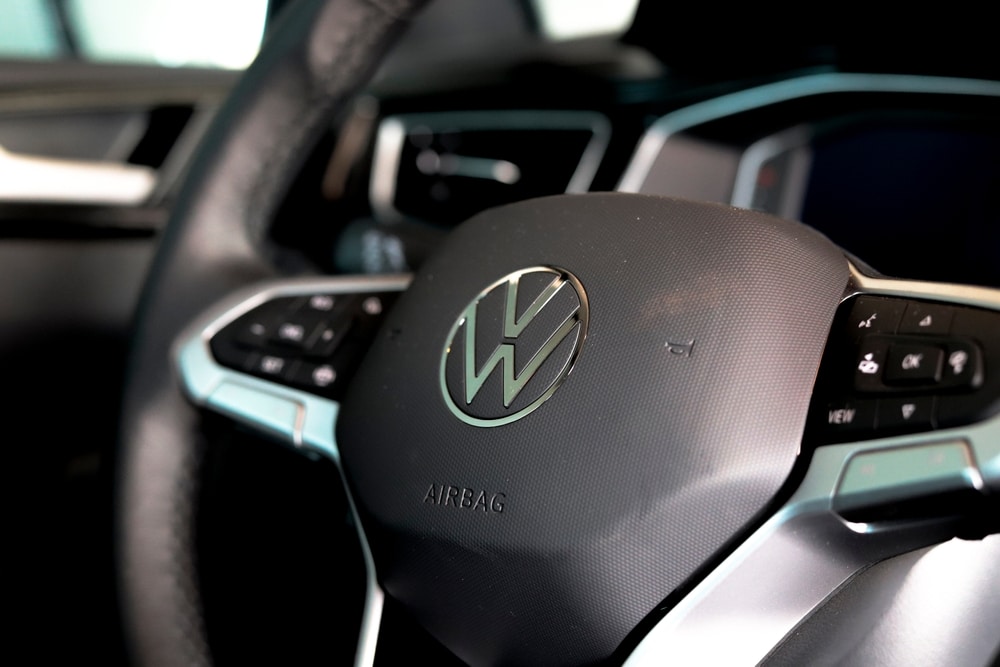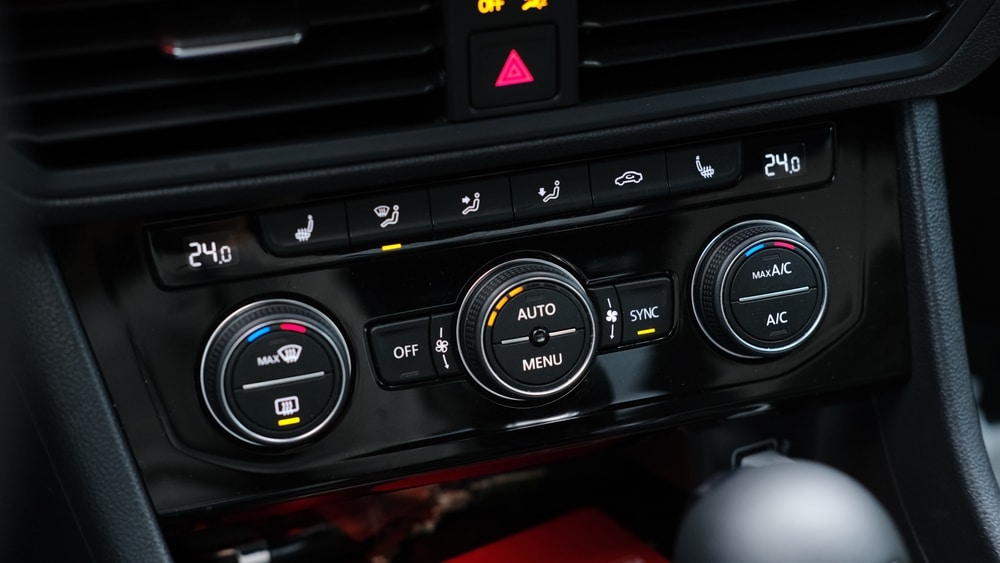Diesel Fuel Filters
Can one small filter really protect your engine from expensive damage?
Your diesel fuel filter removes particles and water before they can reach the high-pressure pump and injectors. When ignored, it exposes your system to faults, poor performance, and high repair costs.
This blog will cover:
- Where the filter is located.
- How it functions.
- The issues that arise when servicing is skipped.
- Why regular replacement matters.
When did you last replace your diesel filter?
Call Standish Service Station, Standish today on 01257 422899 to book your diesel car service.
Position of the diesel fuel filter
The diesel fuel filter (part 4 in the diagram) is normally fitted on the low-pressure line, between the fuel tank and the high-pressure pump.
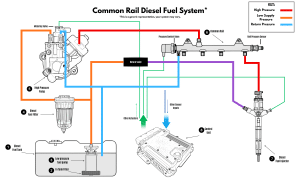
Most modern vehicles place it in the engine bay to make servicing straightforward.
A coarse strainer inside the tank (part 2) is also common, catching larger debris before it reaches the main diesel fuel filter.
For a full overview of how your fuel system works, visit our Diesel Fuel System Guide.
Why is the diesel fuel filter important?
Your diesel fuel filter helps protect your diesel fuel system in two crucial ways:
- Catching debris: It intercepts dirt and particles carried in the diesel before they reach crucial parts like the high-pressure pump or fuel injectors. If these contaminants were left unchecked, they could cause wear, blockages, or even major failures.
- Separating water: Diesel always contains small traces of water. The filter removes this before it circulates, helping prevent corrosion and damage to the diesel fuel system, which can be costly.
Your vehicle’s diesel fuel filter is a small part with a big responsibility; don’t neglect it.
Book your diesel service with Standish Service Station, Standish today on 01257 422899 and keep your fuel system at its best.
Different types of diesel fuel filters
Most modern diesel vehicles use a fine diesel fuel filter to protect your vehicle from harmful contaminants and water (part 4 in the diagram), but the construction can vary.
The two most common types are:
- Sealed diesel filter units: These sealed canisters contain housing and media and are replaced as one piece. They are often found in older or heavy-duty vehicles and sometimes feature built-in water separation or drain bowls.
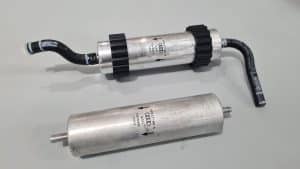
- Cartridge modules: A fixed plastic or aluminium housing contains a pleated, multi-layer filter element that captures dirt and separates water. These housings may also include extras such as valves, sensors, or a hand primer. At service, the housing is retained while the internal element is replaced.
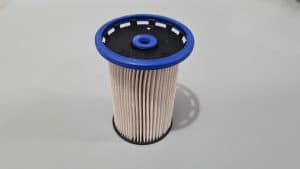
Most systems also have a coarse strainer inside the tank (part 2 in the diagram), which captures larger debris before it reaches the main filter.
If you want to keep your diesel fuel system in top condition, regular diesel fuel filter replacement is essential. Changing the filter on schedule is a key part of preventative maintenance, helping you avoid fuel system faults, costly repairs, and keeping your engine running smoothly.
Book today with Standish Service Station, Standish on 01257 422899.
Faults linked to diesel fuel filter problems
Several issues can arise when your diesel fuel filter isn’t working correctly:
- Strainer blockage: A blocked in-tank strainer increases the workload on the lift pump, creating noise and irregular fuel delivery.
- Water ingress: If water passes through, it can corrode your fuel system, including parts like the injectors, damage the pump, and create expensive failures.
- Incorrect fitment: A poor seal or installing the wrong diesel fuel filter can lead to fuel leaks, air ingress, or contaminants bypassing the filter.
- Restricted main diesel fuel filter: A clogged diesel fuel filter lowers the flow of diesel to the high-pressure pump, resulting in poor performance, extended cranking, or even a no-start.
- Air leaks: If seals are damaged or the filter is fitted incorrectly, air can enter the low-pressure side, leading to hesitation, stalling, or longer starting times.
It’s worth mentioning that other faults can also cause the symptoms of these problems, so it’s always worth seeking professional help.
Worried your diesel car has a problem? Speaking to an expert can give you peace of mind.
Service life of a diesel fuel filter
There isn’t one standard replacement interval for diesel fuel filters. The correct timing depends on your manufacturer’s guidance.
Important reminders:
- Correct filter type: Always use the diesel fuel filter specified for your vehicle make and model. Poor-quality parts may leak, restrict flow, or separate water poorly.
- Priming process: After fitting a new diesel fuel filter, the diesel fuel system must be primed using the pumps or a hand primer. Missing this step can cause air locks, leading to starting problems or pump damage.
- Water checks: Some diesel fuel filters have drains or sensors. During servicing, these should be inspected and emptied when necessary.
Efficiency loss: Water separation efficiency starts above 95% in a new diesel fuel filter but drops to around 70% near the end of its service life.
Regular diesel fuel filter replacement is an essential part of preventative maintenance. By sticking to the servicing schedule set by your manufacturer, you reduce the risk of fuel system issues and help your diesel continue to perform at its best.
Call Standish Service Station, Standish today on 01257 422899 to book your diesel car service.
Protecting your diesel system
Sticking to your diesel fuel filter replacement schedule is key to preventative maintenance. By following the manufacturer’s servicing guidance, you reduce the chance of fuel system problems and help your engine stay reliable.
Taking care of it now avoids much bigger repair bills later.
And when it comes to keeping your vehicle safe, choosing the right garage is crucial. This is why drivers across Wigan, Bolton and the surrounding areas trust Standish Service Station.
Why drivers choose Standish Service Station
Our customers return to us because we provide:
- Skilled diesel servicing from experienced technicians.
- A full 12-month parts and labour guarantee.
- Courtesy cars are available while your vehicle is with us.
We’re proud of our {{average-rating}}⭐ Google rating from {{review-count}} drivers across Standish, Wigan and Bolton.
When did you last change your diesel filter?
Call Standish Service Station, Standish today on 01257 422899 to book.
Diesel fuel filter FAQs for Standish drivers
- What does a diesel fuel filter do?
The diesel fuel filter helps protect your diesel fuel system by filtering out particles and water before they reach critical fuel system parts like the fuel injectors and high-pressure pump. Without it, corrosion, blockages, and wear can cause serious failures. - Where is the diesel fuel filter located?
Your car’s diesel fuel filter is installed on the low-pressure line between the tank and the high-pressure pump. Most vehicles position it in the engine bay. A coarse in-tank strainer also helps by capturing larger debris. - What are the symptoms of a blocked diesel filter?
Typical symptoms of a blocked diesel fuel filter include hard starting, hesitation, stalling, poor performance, or total no-start. Because these can also result from other faults, professional checks are needed. - Can a blocked diesel fuel filter damage the pump?
Yes. A restricted diesel fuel filter reduces flow, which makes the pump overwork. Over time, this can cause premature wear or outright failure – repairs much costlier than a filter change. - How often should the diesel fuel filter be replaced?
There is no universal time or mileage for diesel fuel filter replacement. The best approach is to follow the manufacturer’s interval.
